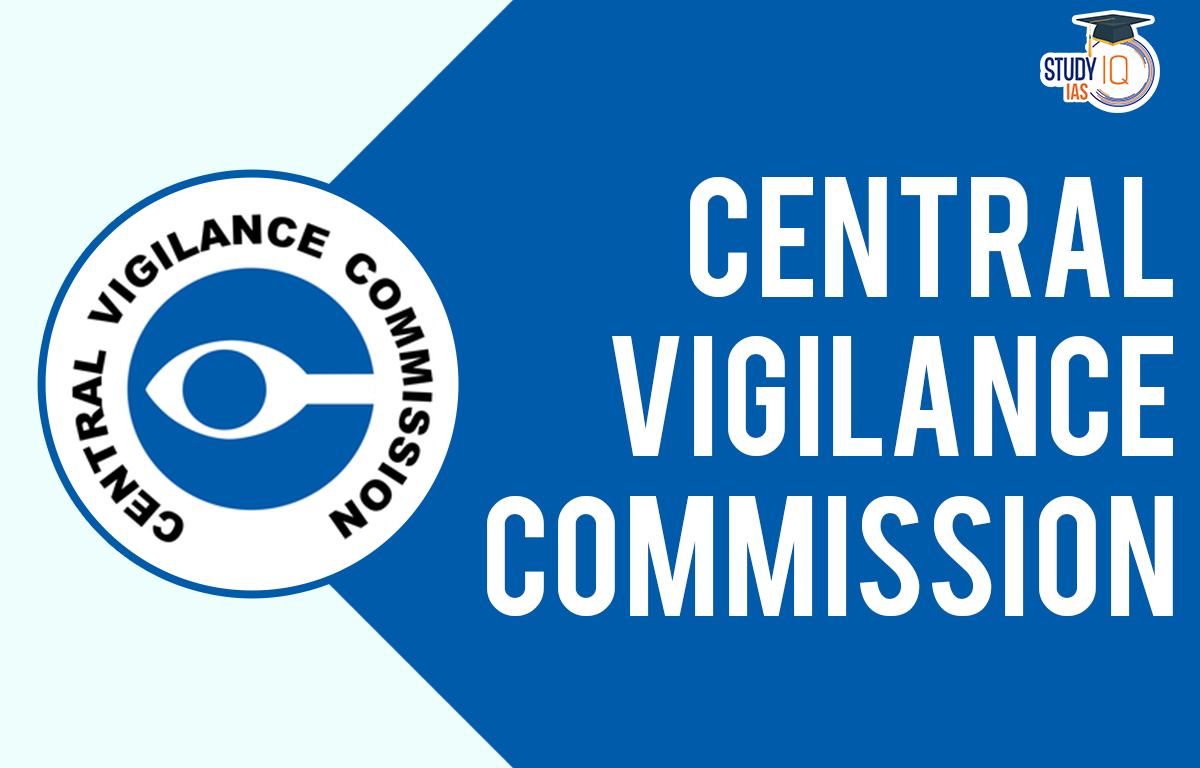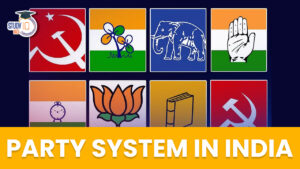Table of Contents
Central Vigilance Commission
The Central Vigilance Commission (CVC) is India’s main agency for preventing corruption in the Central Government. Established in 1964 based on the Santhanam Committee’s recommendations, it initially operated as an executive body. It gained statutory status with the Central Vigilance Commission Act of 2003. The CVC, headquartered in New Delhi, oversees vigilance activities, advising various Central Government organizations on planning, executing, and reforming their vigilance efforts.
The Central Vigilance Commission is an important part of Indian Polity which an important subject in UPSC Syllabus. Students can also go for UPSC Mock Test to get more accuracy in their preparations.
Central Vigilance Commission History
On the advice of the Committee on Prevention of Corruption, led by Shri K. Santhanam, the Central Vigilance Commission was established by the Government in February 1964. The Central Vigilance Commission is designed to be the top vigilance institution, independent of all executive powers. It is responsible for overseeing all vigilance activity conducted by the Central Government and providing guidance to various Central Government organization authorities on how to plan, carry out, evaluate, and reform their vigilant work.
After the President issued an Ordinance, the Central Vigilance Commission was transformed into a multi-member commission with “statutory status” as of August 25th, 1998. When the Central Vigilance Commission Bill Act 2003 was passed by the legislature and approved by the president in 2003, the Central Vigilance Commission became operational.
Present Commissioners
| Central Vigilance Commissioner |
Central Vigilance Commissioner:
Career:
|
| Vigilance Commissioner |
Qualifications:
Worked at:
|
Central Vigilance Commission Composition
A chairman and no more than two commissioners make up the CVC, a multi-member body. On the advice of a three-person committee, the President appoints them by warrant in his hand and field. The Prime Minister, the Union Minister of Home Affairs, and the Lok Sabha opposition leader make up the committee.
Tenure of Members of the Central Vigilance Commission
- The Central Vigilance Commissioner (CVC) and Vigilance Commissioners (VCs) serve for four years or until they turn 65, whichever comes first.
- They cannot take up any other government jobs after their term.
Removal of Members
The President of India can remove the CVC or VCs for reasons like:
- Being declared insolvent.
- Being convicted of a serious crime.
- Taking paid jobs outside their official duties.
- Being deemed unfit due to health issues.
- Having conflicts of interest that affect their work.
If a member is accused of misbehavior, the President must refer the case to the Supreme Court. If the Court confirms the misbehavior, the President can then remove the member.
Note: A member is considered guilty of misbehavior if they are involved in any government contracts or benefit financially from them outside their official role.
Central Vigilance Commission Organizations
The Central Vigilance Commission has a secretariat, commissioners for the departmental inquiry wing, and its own chief technical examiner wing. The CVC is comprised of Wing, the Chief Technical Examiner.
The technical CVC members who assist the engineering staff make up the chief technical examiner’s wing. The chief technical examiners wing of the central Vigilance commission’s primary responsibilities are the technical audit of government organisation construction from a vigilance perspective and the investigation of particular and unusual complaints connected to building projects. Giving the CBI assistance in investigations involving technical issues, evaluating properties, and giving the Chief Vigilance Officer aid in vigilance cases requiring technical issues.
Central Vigilance Commission Functions
The Central Vigilance Commission (CVC) has several key functions:
- Investigate complaints about public servants, especially those under the Prevention of Corruption Act, 1988.
- Supervise the Delhi Special Police Establishment (CBI) regarding corruption cases.
- Review the progress of CBI investigations and pending prosecution approvals.
- Advise the Central Government on related matters.
- Oversee vigilance administration in Central Government ministries.
- Look into complaints under the Public Interest Disclosure and Protection of Informers’ Resolution and recommend actions.
- Consult with the Central Government on rules about vigilance and discipline for Central Services and All India Services.
Central Vigilance Commission Appointment
The Central Vigilance Commissioner and other Vigilance Commissioners are appointed by the President of India.
| This is done based on a recommendation from a three-member committee made up of: |
|
Jurisdiction of the Central Vigilance Commission (CVC)
The CVC can oversee:
- Members of All India Services and Group A officers of the Central Government.
- Officers of Scale V and above in Public Sector Banks.
- Officers in Grade D and above at RBI, NABARD, and IDBI.
- Executives of E-8 and above in Schedule A and B Public Sector Undertakings.
- Executives of E-7 and above in Schedule C and D Public Sector Undertakings.
- Managers and above in General Insurance Companies.
- Senior Divisional Managers and above in Life Insurance Corporation.
- Officers earning ₹8,700 or more per month in Central Government-controlled societies and local authorities.
Working of the CVC
The CVC has the same powers as a Civil Court and can carry out investigations. It can ask the Central Government for information to help with its oversight. After conducting inquiries, the CVC gives advice to the government on what to do next. If the government doesn’t agree with this advice, it must provide a written explanation. The CVC works from its headquarters in New Delhi and can decide how to conduct its own procedures.
Annual Reports
- The CVC submits an annual report to the President, who presents it to Parliament.
Central Vigilance Commission UPSC
Private sector banks are now subject to the Commission’s scrutiny due to the Government’s extensive expansion of its powers and authority. As a result, since the Commission’s creation, its authority has undergone a significant evolution. The Central Vigilance Commission, or CVC UPSC issue, is a fascinating aspect of Indian politics. Students can read all the details related to UPSC by visiting the official website of StudyIQ UPSC Online Coaching.


 Maharashtra Bill to Curb Urban Naxalism,...
Maharashtra Bill to Curb Urban Naxalism,...
 Party System in India, Feature, Importan...
Party System in India, Feature, Importan...
 Consolidated Fund of India, Meaning and ...
Consolidated Fund of India, Meaning and ...





















